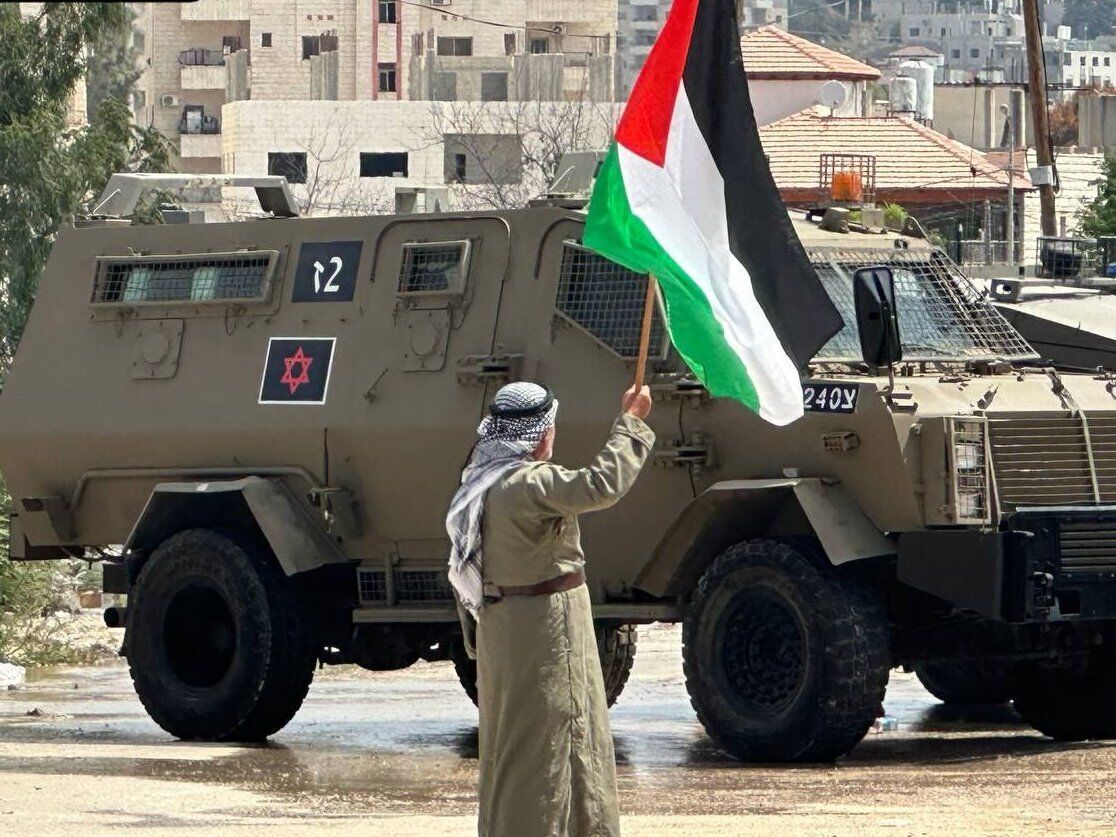
Palestinian analysts confirm the military operation launched by the Israeli occupation on the camps in the northern occupied West Bank – “Summer Camps” – aim to eradicate the resistance through excess force and the destruction of their popular base and is considered more dangerous than the “Defensive Shield” operation it carried out in the occupied West Bank in 2002.
Palestinian political analyst Ismat Mansour stressed the most dangerous thing about the last Israeli military operation emanates from what Israeli Foreign Minister Israel Katz said about evacuating the residents of the camps to humanitarian places to carry out cleansing operations,” a sentence also made by the army spokesman when the operation was launched.
“The goal of these military operations are clear, and represented in destroying the Palestinian infrastructure and turning the camps into uninhabitable places with creeping and gradual ethnic cleansing,” Mansour told Quds Press.
Mansour attributed these plans to the declared programs of the Israeli occupation government and “its structure, ideology, and agenda – highlighted by Finance Minister Bezalel Smotrich to resolve the conflict,” in reference to the aim to annex the West Bank to the occupation state.
Therefore Mansour called for “the necessity of working to find a unified collective plan that mobilizes all [Palestinian] energies to confront this criminal mentality.”
Expert Azzam Abu Al-Adas considers the current Israeli military operation in the West Bank is far “more dangerous than that of the Operation Defensive Shield carried by the Jewish army in 2002.”
He pointed out “when Operation Defensive Shield was executed, the Palestinian factions were present in the West Bank and existed in terms of infrastructure, finance, and military, and had the ability to rebuild their forces and compensate for losses. Now, the factions have been dismantled financially, militarily, and socially.”
“Operation Defensive Shield was carried out at a time when the number of settlers in the West Bank was barely 70,000, and now it is 800,000, which means that eliminating the resistance will increase the encroachment of the army and settlers,” according to his thinking.
Abu Al-Adas pointed out head of the Israeli government of occupation Benjamin Netanyahu, “is in dire need of a victory, and since he failed to achieve it in Gaza, he will claim this such an image in the West Bank raise his popularity, especially among the settlers and will increase his chances in the upcoming elections, which he intends to run for.”
“In 2002, the occupation was still living under the shock of the then prime minister Ariel Sharon who entered Al-Aqsa Mosque in 2000, and Al-Aqsa Mosque was out of the game, but now if Israel succeeds in eliminating the resistance act it means the building of the synagogue which Security Minister Itamar Ben-Gvir talked about and displacing the people of Jerusalem” becomes more real.
The occupation forces began a large-scale military operation targeting resistance fighters in Jenin, Tulkarm and Tubas in the northern West Bank at dawn Wednesday, where large Israeli forces invaded all areas, cities and camps in the northern West Bank from several axes, calling it operation “Summer Camps”.
The Israeli media reported the military operation is the largest since Operation Defensive Shield in 2002, and carried out with the Israeli warplanes, army, Israeli Internal Security Service (Shabak) and other undercover forces with the use of helicopters and fighter jets extensively.
Operation Defensive Shield was a military operation carried out by Israel to occupy and attack areas of the Palestinian Authority, after the Palestinian soldier Abdul Basit Odeh carried out the Park Hotel operation, which is considered one of the largest suicide operations in the history of the Palestinian resistance.
For Israel the main goal of the operation was to eliminate the second Palestinian Intifada which began in 2000 after Sharon, as prime minister, stormed the blessed Al-Aqsa Mosque.
“Operation Defensive Shield” was launched on 29 March, 2002 and ended on 10 May.

 bulldozers destroying the streets of Jenin
bulldozers destroying the streets of Jenin 
 (@Partisangirl)
(@Partisangirl) 
 Houthis:
Houthis:




